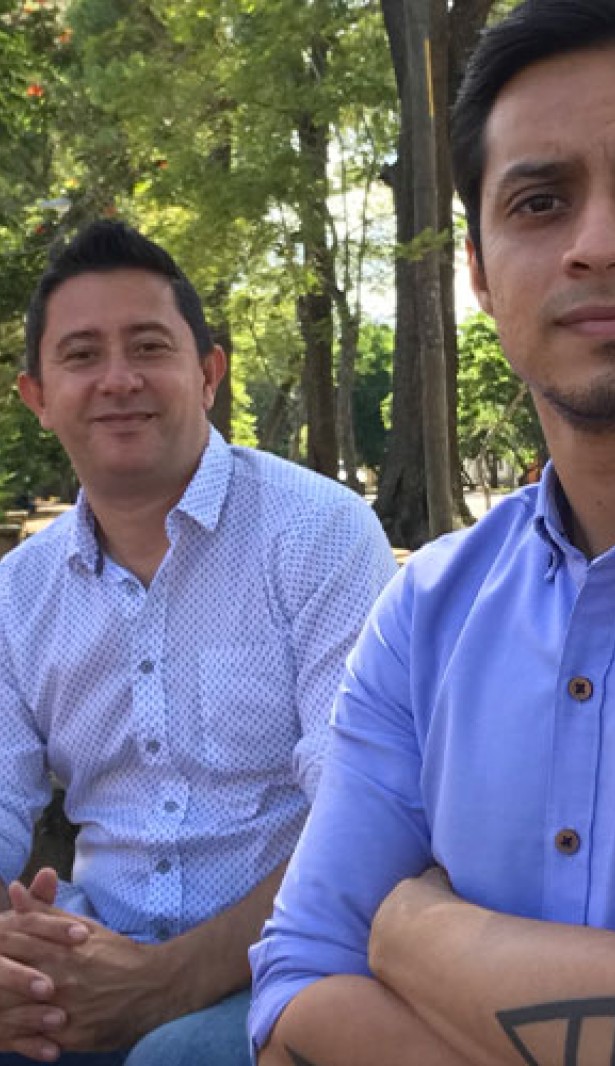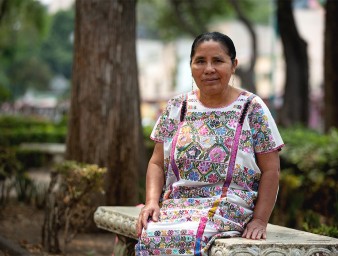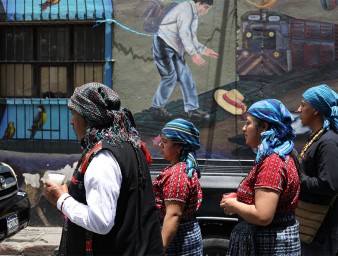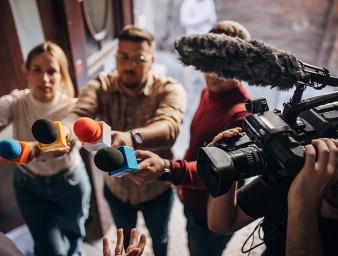“Our work is fundamental"
20 May 2021
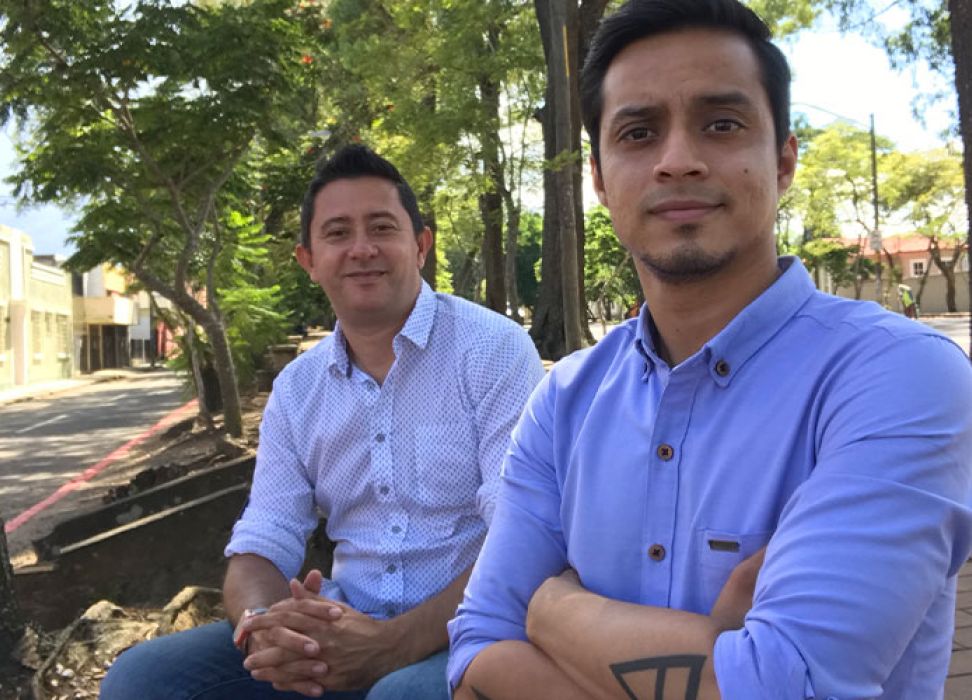
For Marvin Del Cid and Sonny Figueroa being a journalist in Guatemala has been an exercise in creativity, strength and persistence. The two, who are part of Article 35 – an association dedicated to protecting journalists, have been subjected to harassment both on and off line including slander, unlawful detention and death threats. “The information we public becomes a public good,” said Del Cid. “Our work is fundamental.”
For Marvin Del Cid and Sonny Figueroa being a journalist in Guatemala is a cross between being a warrior and a truth-teller.
The two journalists, who are president and vice president respectively of the free press foundation Article 35 (Artículo 35 in Spanish), have faced down many challenges in the years they have been journalists in the country. Between them, they have been followed by people taking photos; been accused of being a member of a drug gang; and had personal denunciations from government officials. Last year, police detained Figueroa and released a day later – without charge. In December, Del Cid received a death threat at his home.
Yet, Figueroa, who also publishes online on the website VoxPopuli, says he and Del Cid continue to investigate and publish their findings – because it is important.
“It was the precariousness of life that motivated me to be a journalist,” the 29-year-old journalist said. “Despite the adversities that one may encounter, it is important to continue trusting in the work that is done.”
Fundamental Work
Gathering pertinent public information from relevant authorities have been one of the big challenges facing journalists in Guatemala, said Del Cid. He and Figueroa have filed request after request to public officials and agencies for access to information that is normally public. Withholding information is damaging, keeping the public in ignorance, he said.
“The information in the hands of the State has to be in the public domain, because this way, citizens make decisions, they are better informed and are more critical,” he said. “I do not know of any society that has not advanced without journalists or a critical press. What we do on a daily basis is relevant because is for the people to be better informed, so they can make better decisions… especially in a country such as Guatemala where there is so much inequality, where poverty effects more than 50 percent of citizens. Our work is fundamental.”
On World Press Freedom Day, Article 35, along with the NGOs Centro Civitas and Article 19, published “Guatemala: State against the Press and Freedom of Expression.” The report highlighted many of the challenges reported by journalists since 2012, including the phenomenon of criminalizing journalists using defamation.
“They don’t attack your journalistic work, they try to attack your personal life, and sometimes go after your family,” said Figueroa. He said he has been followed, has his photo taken, and accused of being a member of a gang, a drug dealer or an extortionist.
A dangerous place to work
Guatemala is deadly for journalists.
According to the UNESCO Observatory of killed journalists, 15 were killed between 2015 to 2020. In a report on the human rights situation in Guatemala, UN High Commissioner for Human Rights Michelle Bachelet noted that freedom of expression had suffered greatly during 2020. The report, which was presented to the Human Rights Council in February, showed journalists faced reprisals for investigative work.
Del Cid and Figueroa were mentioned by name in the report, having faced harassment following the publication of investigations into alleged acts of corruption by Government officials.
The development of a programme to protect journalists was a commitment Guatemala made under the Universal Periodic Review in 2012. According to Del Cid, the government, who is supposed to providing protection to journalists, gives little to no support.
“The State is reluctant to create a protection plan for journalists, it is not a priority,” he said.
“The situation is not good because there is no State protection of journalists,” Figueroa agreed. “That is one of the main challenges, because if something happens to you, there is no way to guarantee your safety and integrity.”
Journalist = human rights defender
Del Cid, 45, has been a journalist for 16 years. For last ten years, he has also been a professor at several local universities. He is now studying law, because he thinks that his experience as a journalist, a professor and as a free expression advocate will help him defend colleagues who find themselves facing similar trouble as he has.
“This is why I consider myself a human rights defender,” he said. “We are constantly working with human rights groups for the right to be informed, to free expression. If they take away our freedom of expression, they take away many things.
Figueroa said he is a human rights defender because being a journalist means ensuring that the right to free and reliable information is necessary for all Guatemalans.
“This does not mean just talking about what happens on a daily basis, but talking about how corruption, impunity, abuses of power occur within the State apparatus and in the private sphere,” he said. “Yes, I am a human rights defender. In the end that is one of the main points that motivates me to continue in this profession, despite attacks from different sectors.”
Disclaimer: The views, information and opinions expressed in this article are those of the persons featured in the story and do not necessarily reflect the official policy or position of the office of the UN High Commissioner for Human Rights.
20 May 2021
